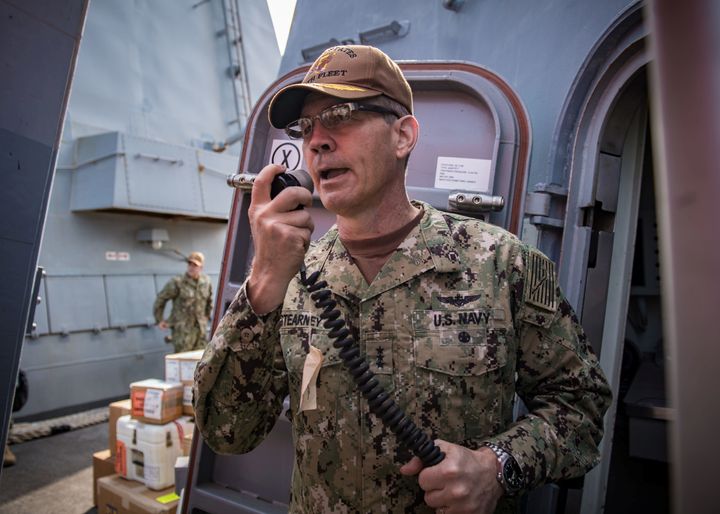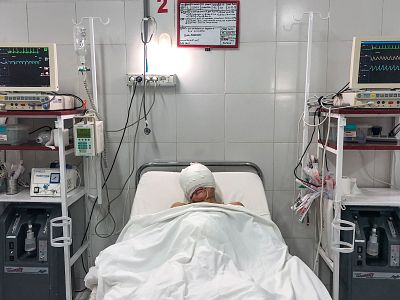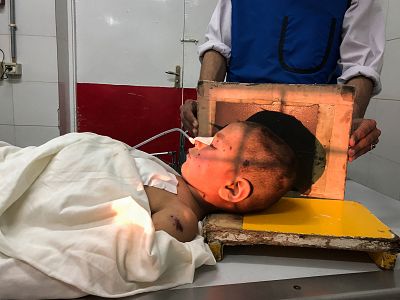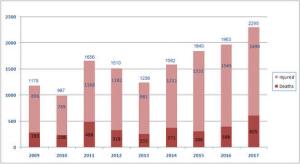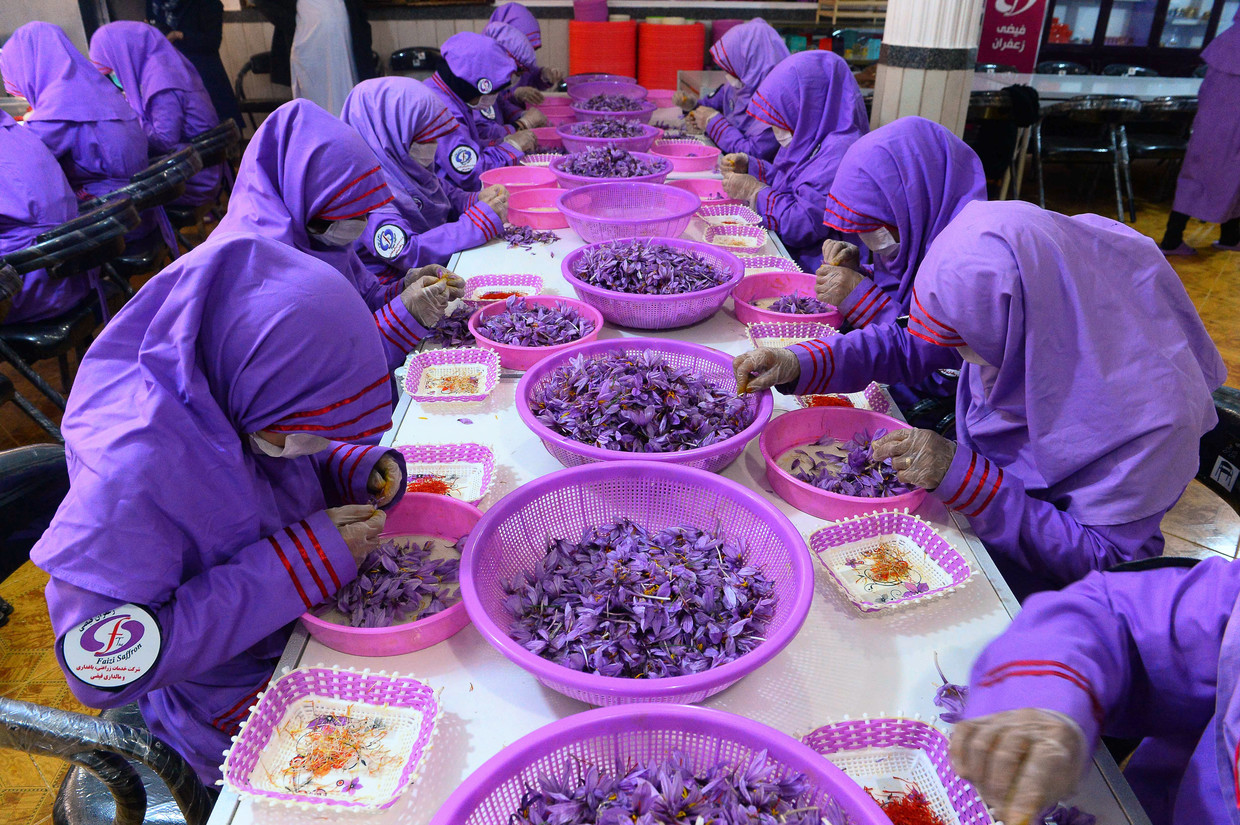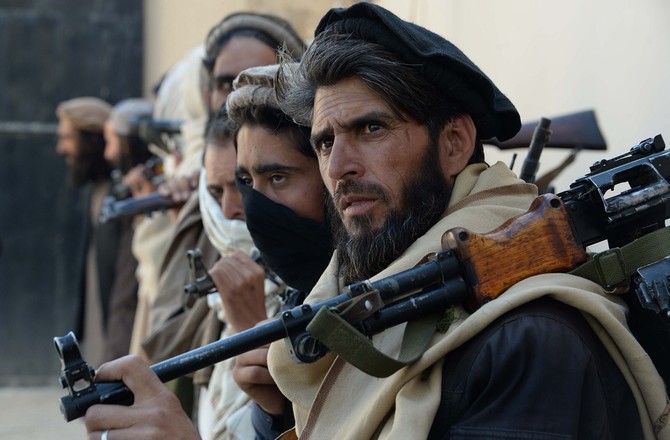angelburst29
The Living Force
11.26.2018 - World Powers meet in Geneva on Afghan Reforms, Peace Prospects
World powers meet in Geneva on Afghan reforms, peace prospects | Reuters

Afghan leaders and international diplomats meet in Geneva on Tuesday to evaluate whether strategies and aid offered to Afghanistan are helping resolve the quagmire created by the 17-year war, paving way for the withdrawal of foreign troops.
The two-day conference on Afghanistan, jointly hosted by the Afghan government and the United Nations comes at a time when U.S. President Donald Trump’s administration is actively seeking a peace deal with the Taliban.
While no fresh financial commitments are expected, the conference will be a chance for donors to measure results against the $15.2 billion committed for Afghanistan at the last funding meeting in Brussels in 2016.
“At least 60 percent of all the promises made by President Ghani at Brussels have been implemented. Discussions will be held regarding the challenges,” said Haroon Chakhansuri, President Ashraf Ghani’s spokesman.
With Afghan security forces struggling to hold back increasingly confident Taliban fighters and Western appetite for further commitments uncertain, the conference comes at a sensitive moment.
The government will present a growth strategy mapping out how an economy battered by 40 years of war can one day stand on its own as well as pledges on issues ranging from fighting corruption to women’s empowerment.
However diplomats said much of the focus will be on side meetings, where officials from Afghanistan and regional and Western countries will have a chance to assess the efforts of U.S. peace envoy Zalmay Khalilzad.
Ghani, facing a war-weary public at home, is expected to press regional countries to support the process but he has so far been kept on the sidelines by the Taliban’s refusal to talk to his government, which they consider illegitimate.
His own future will be decided by presidential elections due in April but organizational and political problems may hamper the vote with authorities admitting they are considering a delay of three months.
The Taliban, fighting to drive out international forces and establish their version of strict Islamic law, will not be attending but will be closely monitoring the talks.
We hope the international leaders accept our demands and put pressure on the U.S. to withdraw all foreign forces from Afghanistan,” said a Taliban member. “Otherwise the conference will hold little significance.”
The United States currently has some 14,000 troops in Afghanistan, serving in the NATO-led Resolute Support training and advisory mission as well as in separate counter-terrorism operations against militant groups like Islamic State.
11.27.2018 - We're open for Business, Afghan President tells UN Conference
We're open for business, Afghan president tells U.N. conference | Reuters

Afghanistan's President Ashraf Ghani attends a two-day conference on Afghanistan at the United Nations in Geneva, Switzerland, November 27, 2018. REUTERS/Denis Balibouse
Afghanistan President Ashraf Ghani made an investment pitch at a U.N. conference on Tuesday, describing the business opportunities and challenges in a country where millions are displaced or close to starvation.
The two-day conference, jointly hosted by the Afghan government and the United Nations, will evaluate whether strategies and aid are helping to resolve the quagmire created by Afghanistan’s 17-year war, clearing the way for the withdrawal of foreign troops.
Tue Nov 27, 2018 - Sixteen Militants Killed, Wounded in Nawid-25 Operations in Balkh Province
Farsnews

The 209th Shaheen Corps of the Afghan Military in the North in a statement said the raid was conducted in Chahar Bolak district as part of the ongoing Nawid-25 operations, Khaama Press reported.
The statement further added at least six militants were killed and ten others were wounded during the raid in Zekzek and Nawarid Zekzek villages of the district.
According to 209th Shaheen Corps, the Afghan forces also discovered a BM-1 warhead and a landmine during the raid which were later defused.
The anti-government armed militants including Taliban have not commented regarding the raid so far.
Balkh was among the relatively calm provinces in North of Afghanistan but the security situation in some of its districts has started to deteriorate during the recent years.
The anti-government armed militants are active in some remote districts of Balkh where they occasionally conduct terrorist related activities.
Tue Nov 27, 2018 - Over 50 Arrested in Connection to Unrest during Kabul Protests
Farsnews

Afghan Interior Minister Wais Ahmad Barmak said that more than 50 people have been arrested in connection to unrest during the recent protests in Kabul.
Barmak made the remarks during a session of the Upper House of Parliament in which the security sector officials were summoned to brief the Senators, Khaama Press reported.
He said the police forces must be informed regarding any planned protests of demonstrations emphasizing that such movements would deemed illegal without coordinating with the police forces.
This comes as hundreds of residents of Kabul city protested against the arrest of a local uprising commander Alipur known as commander Shamsher in Kabul on Sunday and Monday.
Kabul Police Chief Gen. Syed Mohammad Roshandil had earlier said that the protests and rallies were organized without informing the police force which resulted in unrest in certain parts of the city.
The security officials are saying at least twenty policemen sustained injuries after the protests turned violent West of the city.
World powers meet in Geneva on Afghan reforms, peace prospects | Reuters
Afghan leaders and international diplomats meet in Geneva on Tuesday to evaluate whether strategies and aid offered to Afghanistan are helping resolve the quagmire created by the 17-year war, paving way for the withdrawal of foreign troops.
The two-day conference on Afghanistan, jointly hosted by the Afghan government and the United Nations comes at a time when U.S. President Donald Trump’s administration is actively seeking a peace deal with the Taliban.
While no fresh financial commitments are expected, the conference will be a chance for donors to measure results against the $15.2 billion committed for Afghanistan at the last funding meeting in Brussels in 2016.
“At least 60 percent of all the promises made by President Ghani at Brussels have been implemented. Discussions will be held regarding the challenges,” said Haroon Chakhansuri, President Ashraf Ghani’s spokesman.
With Afghan security forces struggling to hold back increasingly confident Taliban fighters and Western appetite for further commitments uncertain, the conference comes at a sensitive moment.
The government will present a growth strategy mapping out how an economy battered by 40 years of war can one day stand on its own as well as pledges on issues ranging from fighting corruption to women’s empowerment.
However diplomats said much of the focus will be on side meetings, where officials from Afghanistan and regional and Western countries will have a chance to assess the efforts of U.S. peace envoy Zalmay Khalilzad.
Ghani, facing a war-weary public at home, is expected to press regional countries to support the process but he has so far been kept on the sidelines by the Taliban’s refusal to talk to his government, which they consider illegitimate.
His own future will be decided by presidential elections due in April but organizational and political problems may hamper the vote with authorities admitting they are considering a delay of three months.
The Taliban, fighting to drive out international forces and establish their version of strict Islamic law, will not be attending but will be closely monitoring the talks.
We hope the international leaders accept our demands and put pressure on the U.S. to withdraw all foreign forces from Afghanistan,” said a Taliban member. “Otherwise the conference will hold little significance.”
The United States currently has some 14,000 troops in Afghanistan, serving in the NATO-led Resolute Support training and advisory mission as well as in separate counter-terrorism operations against militant groups like Islamic State.
11.27.2018 - We're open for Business, Afghan President tells UN Conference
We're open for business, Afghan president tells U.N. conference | Reuters
Afghanistan's President Ashraf Ghani attends a two-day conference on Afghanistan at the United Nations in Geneva, Switzerland, November 27, 2018. REUTERS/Denis Balibouse
Afghanistan President Ashraf Ghani made an investment pitch at a U.N. conference on Tuesday, describing the business opportunities and challenges in a country where millions are displaced or close to starvation.
The two-day conference, jointly hosted by the Afghan government and the United Nations, will evaluate whether strategies and aid are helping to resolve the quagmire created by Afghanistan’s 17-year war, clearing the way for the withdrawal of foreign troops.
Tue Nov 27, 2018 - Sixteen Militants Killed, Wounded in Nawid-25 Operations in Balkh Province
Farsnews

The 209th Shaheen Corps of the Afghan Military in the North in a statement said the raid was conducted in Chahar Bolak district as part of the ongoing Nawid-25 operations, Khaama Press reported.
The statement further added at least six militants were killed and ten others were wounded during the raid in Zekzek and Nawarid Zekzek villages of the district.
According to 209th Shaheen Corps, the Afghan forces also discovered a BM-1 warhead and a landmine during the raid which were later defused.
The anti-government armed militants including Taliban have not commented regarding the raid so far.
Balkh was among the relatively calm provinces in North of Afghanistan but the security situation in some of its districts has started to deteriorate during the recent years.
The anti-government armed militants are active in some remote districts of Balkh where they occasionally conduct terrorist related activities.
Tue Nov 27, 2018 - Over 50 Arrested in Connection to Unrest during Kabul Protests
Farsnews

Afghan Interior Minister Wais Ahmad Barmak said that more than 50 people have been arrested in connection to unrest during the recent protests in Kabul.
Barmak made the remarks during a session of the Upper House of Parliament in which the security sector officials were summoned to brief the Senators, Khaama Press reported.
He said the police forces must be informed regarding any planned protests of demonstrations emphasizing that such movements would deemed illegal without coordinating with the police forces.
This comes as hundreds of residents of Kabul city protested against the arrest of a local uprising commander Alipur known as commander Shamsher in Kabul on Sunday and Monday.
Kabul Police Chief Gen. Syed Mohammad Roshandil had earlier said that the protests and rallies were organized without informing the police force which resulted in unrest in certain parts of the city.
The security officials are saying at least twenty policemen sustained injuries after the protests turned violent West of the city.


